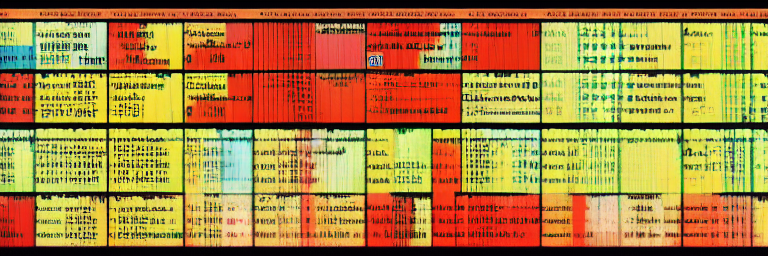Understanding Datafication
Datafication is the process of turning data into a commodity. This can be done by collecting data from various sources and then packaging it into a format that can be sold or traded. The data can be used to create new products or services, or it can be used to improve existing ones.
You may have notices it has become increasingly important in recent years as the world has become more connected and data has become more valuable. This has led to a new economy in which data is bought and sold like any other commodity.
Datafication can have a number of benefits, including the creation of new jobs, the development of new products and services, and the improvement of existing ones. However, it can also have some negative consequences, such as the loss of privacy, the manipulation of data, and the creation of monopolies.
Examples
Our data has become a commodity, unlike the past, data was something that was collected and used to make decisions. Today, data is collected and used to generate revenue.
One example of datafication is Facebook. Facebook sells access to its user data to advertisers. Advertisers use this data to target ads to Facebook users. Facebook users are not paid for their data.
Another example of datafication is Google. Google sells access to its search data to advertisers. Advertisers use this data to target ads to Google users. Google users are not paid for their data.
A third example of datafication is credit card companies. Credit card companies sell access to their customer data to retailers. Retailers use this data to target ads and special offers to credit card holders. Credit card holders are not paid for their data.
Datafication is a controversial practice. Some people argue that it is a fair exchange, because users get free access to services in exchange for their data. Others argue that it is unfair, because users are not paid for their data and their privacy is being invaded.
Advantages
There are many advantages to datafication, including the ability to:
- Make better decisions: Datafication can help you make better decisions by providing you with more accurate and up–to–date information.
- Improve efficiency: Datafication can help you improve your efficiency by automating tasks and processes.
- Increase transparency: Datafication can increase transparency by providing you with visibility into all aspects of your business.
- Enhance customer service: Datafication can enhance customer service by providing you with the ability to better understand and respond to customer needs.
- Drive innovation: Datafication can drive innovation by helping you identify new opportunities and ways to improve your business.
Controversy and Challenges
There is much debate surrounding the concept of datafication. Some believe that it is a valuable tool that can be used to improve our understanding of the world and make better decisions. Others argue that it is a dangerous form of surveillance that undermines our privacy and autonomy.
The debate is likely to continue for some time, but there is no doubt that datafication is playing an increasingly important role in our lives. As more and more data is collected, it will be increasingly difficult to ignore its implications.
As the process of turning data into insights, it is one of the most powerful tools we have for understanding the world around us. But it is also one of the most challenging.
Data is often messy and incomplete, making it difficult to glean insights from it. Even when data is clean and complete, it can be challenging to turn it into insights that are actionable and meaningful.
The challenges of datafication are compounded by the fact that the field is constantly changing. New data sources and new methods for analyzing data are being developed all the time. As a result, those who want to use data to understand the world around them must continually adapt and learn.
Despite the challenges, it is an essential tool for understanding our world. Those who can master it will be well-positioned to make a difference in the world.
A Brief History
The history of datafication can be traced back to the early days of computing, when punch cards were used to store and process data. Next, this was followed by the development of magnetic tape and disk storage, which allowed for more sophisticated data processing. Then, the rise of the internet and the World Wide Web led to the development of new ways to collect and process data, such as web logs and cookies. As well, the growth of social media and the rise of mobile devices have further increased the amount of data that can be collected and processed.
The Future of Datafication
The future outlook of datafication is largely positive, as the commodification of data is expected to lead to new and innovative products and services. Additionally, it is expected to increase efficiency and transparency in many industries, as well as improve decision–making processes. However, there are also some potential negative consequences as well, such as privacy concerns and the potential for abuse of data.
In terms of regulation, the outlook is unclear. The current regulatory landscape is complex and ever-changing, making it difficult to predict what the future will hold. However, it is clear that datafication will continue to grow in importance, and companies will need to adapt their practices to ensure compliance with new regulations.

